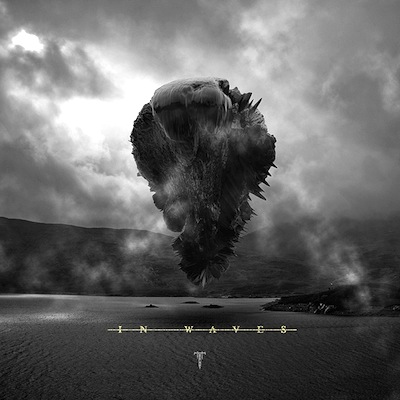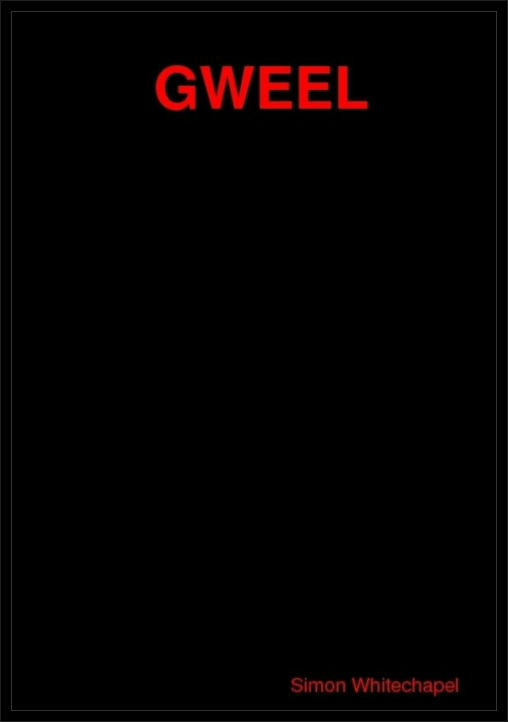 Trivium is part of the late noughties trend I call “hardcore band goes thrash.”
Trivium is part of the late noughties trend I call “hardcore band goes thrash.”
It’s where a hardcore or scenester or emo or whatever band starts growing their hair long, ripping off Metallica a little in their riff construction, and acting like they’re old-school metal. Tim Lambesis. Bullet for my Valentine. Even Disturbed. Everyone’s done it. It’s like the reverse of selling out. I love old fashioned metal. I hate bandwagon hopping pieces of shit pretending they’re old fashioned metal.
There’s a corollary: trendy modern bands with harmonised guitar leads saying they’re inspired by Iron Maiden. Fact: any modern hardcore band that uses harmonised leads was inspired by In Flames (or some other In Flames sounding band like Arch Enemy). Don’t argue. It’s the truth. Oh, sure…they have all the Iron Maiden albums now, because you have to live the lie…but they were fans of In Flames first.
In Waves is Trivium’s fifth album. They’ve scaled back the overt Metallica/Annihilator influences of The Crusade, ditched the epic pseudo-Iron Maiden trappings of Shogun, and delivered a focused, brutal punch of their not-so-powerful brand of metal. In Waves is as polished as a metal album can get. The production is huge and thick and loud, to the point where Nick Augustomendezdfasdfkhj (who the fuck knows who drums for this band) threatens to blow speakers apart with each snare hit. Matt Heafy and Corey Can’t-Be-Bothered-to-Type-Out-His-Name bring their hardest and toughest guitar tones yet. (The bassist is an Unperson as always.)
Songwriting verdict: all over the place. Trivium alternate good and crap, over and over and over and over. The surging djent riff powering the title track…this is good. The annoying melodic verses and repetitive chorus…this is bad. The powerful rhythmic stomp of “Dusk Dismantled”…this is good. The obnoxious “bree” inhales on the final chorus…look, deathcore is over, you dumbasses. You should be over, too.
Most of the songs feature choppy unmemorable “core” riffs and horrible clean choruses. The entire lead section is greatly simplified compared to their last album. It seems they had trouble replicating Shogun’s three-guitar parts live, so they ditched them for a “only write enough solos to keep up the charade of being old school” approach. Shogun was inconsistent too, but at least it tonally sounded unique and interesting. Now Trivium sounds exactly like everyone else.
I do love one song unreservedly. “Chaos Reigns” is the heaviest Trivium song to date, featuring fast as hell drumming and an amazing set of riffs. Trivium slays on this song. “Chaos Reigns” is actually frustrating, because it shows what the band is capable of. I know the tiger’s there. But they haven’t tamed it yet, and they probably never will. Everyone’s always wondered when Trivium will fully deliver on their potential. Five albums in and you have to wonder how long the wait will be.
It annoys me when bands write an album with just one killer song. In a sense, it’s worse than an album with nothing but duds. Why? Because it’s a tease. I’d rather listen to an untalented band that can’t play music than a talented band that refuses to play music.
No Comments »
 This review is a useless waste of time. I can tell you very little about Gweel. It’s a book, if that helps. It’s made of paper. It has pages. Lots of little words on the pages.
This review is a useless waste of time. I can tell you very little about Gweel. It’s a book, if that helps. It’s made of paper. It has pages. Lots of little words on the pages.
What I can’t do is classify Gweel into a genre, not because none of them fit, but because the concept of a genre doesn’t seem to apply to Gweel. It stands alone, without classification. Calling Gweel “experimental” or “avant garde” would be like stamping a barcode on a moon rock.
It may have been written for an audience of one: author Simon Whitechapel. If we make the very reasonable assumption that he owns a copy of his own book, he may have attained 100% market saturation. However, there could be a valuable peripheral market: people who want to read a book that is very different from anything they’ve read before.
It is a collection of short pieces of writing, similar in tone but not in form, exploring “dread, death, and doom.” “Kopfwurmkundalini” and “Beating the Meat” resemble horror stories, and manage to be frightening yet strangely fantastic. The first one is about a man – paralysed in a motorbike accident, able to communicate only by eye-blinks – and his induction into a strange new reality. It contains a rather thrilling story-within-a-story called “MS Found in a Steel Bottle”, about two men journeying to the bottom of the ocean in a bathysphere. “Kopfwurmkundalini”‘s final pages are written in a made-up language, but the author has encluded a glossary so that you can finish the story.
Those two/three stories make up about half of Gweel’s length. The remainder mostly consists of shorter work that seems to be more about creating an atmosphere or evoking an emotion. “Night Shift” is about a prison for planets (Venus, we learn, is serving a 103.2 year sentence for sex-trafficking), and a theme of prisons and planets runs through a fair few of the other stories here, although usually in a less surreal context. “Acariasis” is a vignette about a convict who sees a dust mite crawling on his cell wall, and imagines it’s a grain of sand from Mars. The image is vivid and the piece has a powerful effect. “Primessence” is The Shawshank Redemption on peyote (and math). A prisoner believes that because his cell is a prime number, he will soon be snatched from it by some mathematical daemon (the story ends with the prisoner’s fate unknown). “The Whisper” is a ghost story of sorts, short and achingly sad.
No doubt my impression of Gweel differs from the one the author intended. But maybe his intention was that I have that different impression than him. Maybe Gweel reveals different secrets to each reader.
I can’t analyse it much, but Gweel struck me as an experience like Fellini’s Amarcord…lots of little story-threads, none of them terribly meaningful on their own. Experienced together, however, those threads will weave themselves into a tapestry in the hall of your mind, a tapestry that’s entirely unique…and your own.
No Comments »
 Enya’s fourth album finds her wealthy, successful, and comfortable. The music has started to suffer. The Memory of Trees is lavish…but it’s self-indulgent in places, and wants for the smallness and humbleness Enya had on her early releases.
Enya’s fourth album finds her wealthy, successful, and comfortable. The music has started to suffer. The Memory of Trees is lavish…but it’s self-indulgent in places, and wants for the smallness and humbleness Enya had on her early releases.
After the pleasant title track, we get “Anywhere Is”, which is catchy and enticing, but as unsatisfying as a cake that’s all icing. Enya’s voice utterly dominates the track. Enya used to sing over music, but now her singing is the music, with the instrumentation being some light percussion and orchestral stabs. The song sounds too samey. Where “I Want Tomorrow” and “Exile” took you on a journey, “Anywhere Is” takes you around in circles. Skip 10 seconds in or 30 seconds in or 1 minute in or 3 minutes in…same thing.
“Pax Deorum” is well-meant attempt at being creepy. It works about as well as “creepy” always does for Enya…not super well.
At “Athair Ar Neamh” the album finally gets out of cruise control mode. I really like this song. Enya sounds vulnerable and fragile, and Nicky Ryan’s production compliments the atmosphere. There’s still a “vocals > all” approach here but it works better than on other tracks. “From Where I Am” is a piano song that reminds a bit of the title track on Watermark.
From there the album goes back and forth between well-deserved classics and songs that sound pleasant and are easily forgotten. “Once You Had Gold” sounds great. “On My Way Home” comes from the same die as “Anywhere Is” but sounds a bit more varied and elaborate. “Tea House Moon” tickles the ears a bit with some strange melodies but doesn’t really stick with you. Another weird thing about modern Enya is that she doesn’t seem to be that great at writing instrumentals any more.
There’s not a lot of musical residue left over from The Celts. What a pity.
No more badass Vangelis-sounding tracks that mix classical music with futuristic synths. This is the album of piano, pad choirs, and Enya’s voice. No more songs like “Epona”, with wandering, lonely melodies that seem almost afraid to let you hear them. Enya now hews to a pop songwriting model worthy of Kara Dioguardi and Max Martin. This is the last Enya album I own a copy of, but I’ve listened to the later ones and they all seem to be like The Memory of Trees, but a bit worse. I wish Enya hadn’t decided that musical evolution means not adding things to her sound, but cutting things out of it.
No Comments »
 Trivium is part of the late noughties trend I call “hardcore band goes thrash.”
Trivium is part of the late noughties trend I call “hardcore band goes thrash.”

